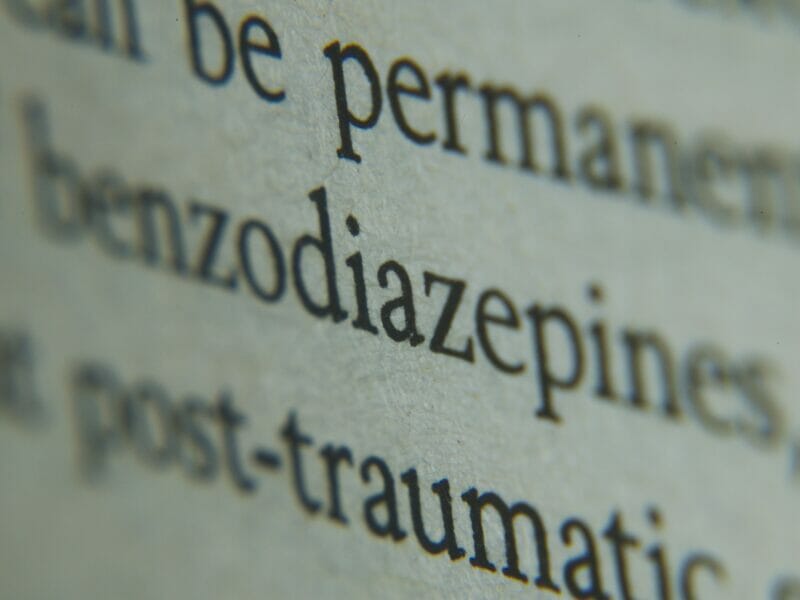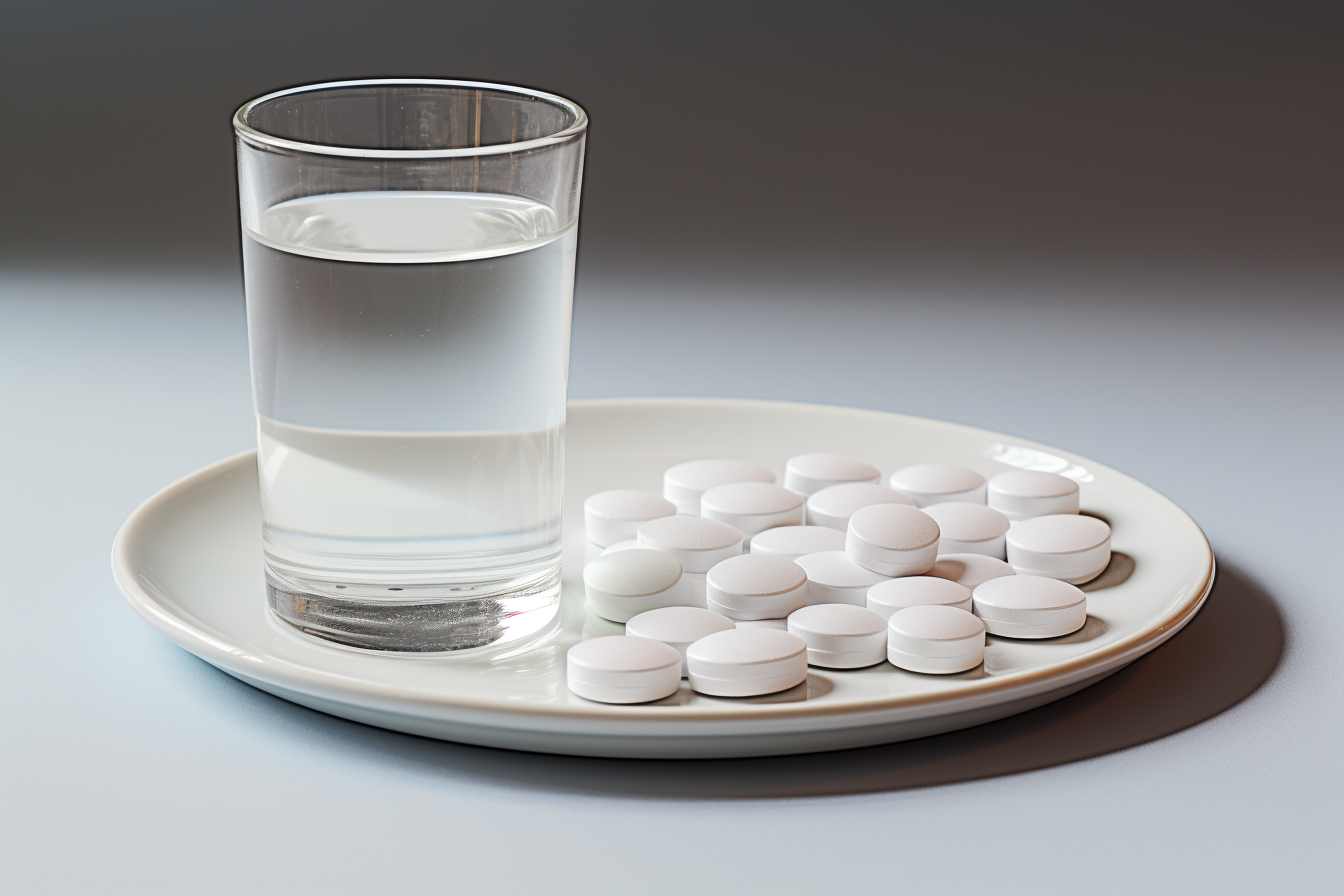In the world of medicine and health, it is crucial to understand not only the effects of individual medications or supplements but also the intricate web of interactions they can have with one another. In particular, when it comes to Gamma-Aminobutyric Acid (GABA), a neurotransmitter that plays a significant role in regulating brain activity and reducing anxiety, exploring its interactions with other medications or supplements becomes imperative. This article delves into the fascinating realm of understanding how GABA interacts with different substances, offering invaluable insights for healthcare professionals and individuals seeking comprehensive knowledge about their medication regimens. By uncovering these interactions, we aim to promote safe and effective treatment strategies while ensuring optimal patient outcomes in an increasingly complex medical landscape.
Interactions of GABA with Benzodiazepines
Interactions between GABA and benzodiazepines, a class of medications commonly used to treat anxiety and sleep disorders, are of great interest in the field of medicine.

Benzodiazepines enhance the effects of GABA by binding to specific receptors in the brain, which then increases the inhibitory actions of GABA.
This synergy leads to a calming effect on the central nervous system, ultimately reducing anxiety levels. When taken together, benzodiazepines can potentiate the effects of exogenous or supplemental GABA.
However, it is important to note that taking excessive amounts or combining these substances without proper medical guidance can lead to adverse effects such as drowsiness, sedation, confusion, and respiratory depression.
Therefore, caution should be exercised when using benzodiazepines in conjunction with GABA supplements or other medications that affect GABA activity.
Overall, understanding how GABA interacts with benzodiazepines provides valuable insights into their combined therapeutic potential for managing anxiety disorders and promoting relaxation. However beneficial this interaction might be when used appropriately under medical supervision; it is crucial to consult healthcare professionals before combining these substances to ensure safety and maximize efficacy.
Interactions of GABA with Antidepressants
Understanding the interactions between GABA and antidepressants is essential in optimizing mental health treatment. Antidepressants, such as selective serotonin reuptake inhibitors (SSRIs), tricyclic antidepressants (TCAs), and monoamine oxidase inhibitors (MAOIs), are commonly prescribed to alleviate symptoms of depression. These medications work by altering the levels of various neurotransmitters in the brain, including serotonin and norepinephrine.
GABA, on the other hand, is an inhibitory neurotransmitter that reduces neuronal excitability and promotes relaxation. Research suggests that GABAergic medications like benzodiazepines can enhance the effects of antidepressants by increasing their efficacy in managing depressive symptoms. Additionally, some studies indicate that combining certain SSRIs with GABA agonists may produce synergistic effects in reducing anxiety and improving sleep quality.
However, it should be noted that while there may be potential benefits to combining GABA with antidepressant medications, individual responses can vary greatly due to factors such as genetic predisposition or pre-existing medical conditions. Therefore, it is vital for healthcare professionals to carefully consider these interactions when prescribing medication regimens for patients with depression or anxiety disorders.
Interactions of GABA with Antipsychotics
When considering the interactions of GABA with antipsychotics, it is important to recognize the potential effects on brain activity and anxiety reduction. Antipsychotic medications are commonly used to treat conditions such as schizophrenia and bipolar disorder by modulating various neurotransmitters in the brain, including dopamine and serotonin. Studies have suggested that GABAergic pathways may also be involved in the therapeutic effects of antipsychotics, potentially enhancing their effectiveness.
Research has shown that antipsychotics can influence the release or availability of GABA within certain regions of the brain. This interaction could promote a calming effect and contribute to symptom alleviation in individuals with psychotic disorders. Additionally, combining GABA supplements or medications with antipsychotics might augment these therapeutic benefits further; however, more studies are needed to establish clear guidelines for safe usage and dosage.
Understanding how GABA interacts with different substances provides valuable insights into potential synergistic or adverse reactions when combined with antipsychotic medications. These findings can help healthcare professionals make informed decisions regarding treatment strategies for patients suffering from mental health conditions where both GABA dysfunction and psychiatric symptoms play a role.
Interactions of GABA with Herbal Supplements
Understanding the interactions between GABA and herbal supplements is essential for optimal health. GABA, a neurotransmitter known for its role in reducing anxiety and regulating brain activity, can interact with various medications or supplements. By exploring these interactions, we gain invaluable insights into how GABA behaves when combined with different substances.
 Herbal supplements, which are often used as complementary treatments to conventional medicine, may have potential interactions with GABA. These interactions can either enhance or inhibit the effects of GABA in the body. Understanding these dynamics allows healthcare professionals and individuals to make informed decisions about combining herbal supplements with GABA for therapeutic purposes.
Herbal supplements, which are often used as complementary treatments to conventional medicine, may have potential interactions with GABA. These interactions can either enhance or inhibit the effects of GABA in the body. Understanding these dynamics allows healthcare professionals and individuals to make informed decisions about combining herbal supplements with GABA for therapeutic purposes.
While further research is necessary to fully comprehend these interactions, valuable knowledge has already been gained regarding the interplay between GABA and herbal supplements. This exploration provides a foundation for optimizing treatment plans by considering how these two components influence one another within the complex web of medication and supplement interactions.
Interactions of GABA with Sleep Aids
Understanding the interactions between GABA and sleep aids is of utmost importance in the realm of medicine and health. Gamma-Aminobutyric Acid, a neurotransmitter crucial for regulating brain activity and minimizing anxiety, can have complex interactions with other medications or supplements. Exploring these interactions becomes imperative to gain valuable insights into how GABA interacts with different substances, particularly sleep aids.
The intricate web of interactions between GABA and sleep aids plays a significant role in understanding their combined effects on one’s health. Sleep aids primarily target mechanisms that promote relaxation and induce sleep, often by enhancing the effects of GABA in the brain. By interacting with GABA receptors, which regulate neuronal excitability, these medications can enhance inhibitory signaling and help combat insomnia symptoms effectively. However, it is paramount to consider potential drug-drug interactions when combining sleep aids with other medications that modulate GABA pathways to ensure optimal safety and effectiveness.
Proper comprehension of how GABA interplays with various substances provides invaluable insights into its overall impact on health. By studying these interactions thoroughly, healthcare professionals gain an enhanced understanding of how best to prescribe and combine medication regimens involving both GABAergic compounds like sleep aids as well as other medications or supplements that influence this crucial neurotransmitter system. This knowledge enables healthcare providers to optimize treatment approaches while promoting patient well-being through safe combinations tailored to individual needs.

Interactions of GABA with Alcohol
Interactions between GABA and alcohol are of particular interest due to their effects on the central nervous system. Alcohol is known to enhance the action of GABA, further inhibiting brain activity and inducing sedative effects. This can result in a decrease in anxiety levels and feelings of relaxation. However, excessive alcohol consumption can lead to an overstimulation of GABA receptors, potentially causing memory impairment, dependence, and even blackouts.
It is crucial to note that consuming alcohol alongside medications or supplements that also affect the GABA system may have additive effects on sedation and cognitive functioning. Combining substances such as benzodiazepines or sleep aids with alcohol can significantly increase the risk of respiratory depression, coma, or even death. Understanding these interactions is vital for healthcare professionals when prescribing medications or advising patients about appropriate use to ensure optimal outcomes and minimize potential harm.
Interactions of GABA with Pain Medications
When examining the interactions of GABA with pain medications, it becomes evident that GABA can have a significant impact on the effectiveness and side effects of these medications. Pain relievers such as opioids or nonsteroidal anti-inflammatory drugs (NSAIDs) interact with GABA receptors in the brain to modulate pain perception. By increasing GABA activity, these medications can enhance their analgesic effects. However, caution must be exercised as excessive activation of GABA receptors by pain medications may lead to sedation or respiratory depression.
Additionally, certain pain medications may interfere with the production or signaling pathways of GABA in the brain, resulting in altered neurotransmitter levels and potential adverse effects. For example, long-term use of opioids has been shown to reduce endogenous GABAergic tone in some regions of the central nervous system. This disruption can contribute to hyperalgesia, making patients more sensitive to pain stimuli and requiring higher doses for effective relief.
Understanding how different types of pain medication affect GABAergic pathways is crucial for optimizing treatment outcomes while minimizing potential risks associated with their combined use. Further research is needed to comprehensively elucidate these complex interactions and develop strategies that maximize therapeutic benefits while reducing unwanted side effects.
To Summarize:
Interactions of GABA with other medications or supplements involve various factors. GABA, a natural amino acid that functions as a neurotransmitter, plays a crucial role in the activities of the central nervous system, particularly during stress. While it’s found in many foods, GABA is also available as a dietary supplement widely consumed to increase GABA levels in the brain and help manage conditions like high blood pressure and insomnia.

GABA supplements may interact with other substances, leading to potential side effects. For instance, fermented milk containing gamma-aminobutyric acid may lower blood pressure, suggesting that GABA should be used cautiously by individuals with already low blood pressure. Consuming high amounts of GABA has been studied, showing mild side effects or interactions, though adverse events associated with GABA at intakes are rare.
However, the safety and effectiveness of GABA supplements vary based on factors like dosage and individual health conditions.
Since GABA isn’t universally effective, whether GABA supplements work for everyone remains uncertain. Research on GABA also reveals that exogenous GABA may have difficulty crossing the blood-brain barrier. Thus, production of GABA naturally in the body remains an important process.
Before starting a GABA regimen, it’s crucial to understand that GABA tablets or any form of supplement come with possible side effects. Therefore, it’s best to consult a healthcare provider to evaluate potential risks and benefits. Always ensure to use high-quality sources of GABA and follow the supplement label for the best results.
Frequently Asked Questions:
Q: What is GABA?
A: GABA, or gamma-aminobutyric acid, is a neurotransmitter that acts as an inhibitory agent in the central nervous system. It helps to regulate brain function and has a calming effect.
Q: What are the effects of GABA?
A: GABA helps to reduce anxiety and promote relaxation. It can also improve sleep quality, enhance mood, and aid in the management of certain conditions like epilepsy.
Q: Can I take GABA as a supplement?
A: Yes, GABA is available in supplement form. Many people take GABA supplements to support relaxation, reduce stress, and improve sleep.
Q: What is the recommended dosage of GABA?
A: The recommended dosage of GABA supplements can vary depending on individual needs and factors such as age and health condition. It is best to consult with a healthcare professional for personalized dosage recommendations.
Q: Are there any side effects of GABA?
A: Generally, GABA is considered safe when taken within recommended dosages. However, some individuals may experience mild side effects such as drowsiness, headache, or upset stomach. If any adverse reactions occur, it’s advisable to discontinue use and consult a healthcare professional.
Q: What are the benefits of GABA?
A: GABA supplementation may provide several benefits, including stress reduction, improved sleep quality, enhanced mood, and potential support for conditions like anxiety and epilepsy.
Q: Where can I find GABA naturally?
A: GABA can be found naturally in foods such as whole grains, fermented foods, and certain vegetables. However, the concentration of GABA in these sources may be relatively low, which is why some people opt for GABA supplements.
Q: Can anyone take GABA?
A: While GABA is generally safe for most people, it’s advisable to consult a healthcare professional before starting any new supplement, especially if you have any underlying health conditions or take other medications. They can provide personalized guidance based on your specific needs and circumstances.
Q: Can GABA interact with other medications or supplements?
A: GABA may have potential interactions with certain medications or supplements. It’s important to inform your healthcare provider of all the medications or supplements you are taking to ensure there are no contraindications or adverse reactions.
Q: How does GABA affect the central nervous system?
A: GABA plays a crucial role in the activities of the central nervous system. It acts as an inhibitory neurotransmitter, helping to regulate and balance brain activity. This can influence mood, cognition, and overall brain function.



 Potential Side Effects and Precautions of GABA Supplements
Potential Side Effects and Precautions of GABA Supplements
